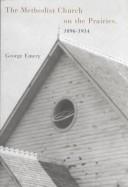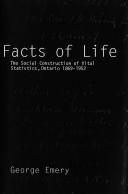| Listing 1 - 4 of 4 |
Sort by
|

ISBN: 1282859323 9786612859328 0773569219 9780773569218 0773521836 9780773521834 9781282859326 6612859326 Year: 2001 Publisher: Montreal, Que. McGill-Queen's University Press
Abstract | Keywords | Export | Availability | Bookmark
 Loading...
Loading...Choose an application
- Reference Manager
- EndNote
- RefWorks (Direct export to RefWorks)
The Methodist Church met the challenge with a centralized polity and a cross-class, gender-variegated, evolving religious culture. It relied on wealthy laymen to raise special funds, while small gifts fed its regular funds. Young bachelors from Ontario and Britain filled the pastorate, although low pay, inexperience, and poor supervision caused many to quit. Membership growth was slow due to low population density and church-resistant elements in the Methodist population (bachelors, immigrant co-religionists, and transients), and missions to non-Anglo-Saxon immigrants in Winnipeg, Edmonton, and rural Alberta spread Methodist values but gained few members. In The Methodist Church on the Prairies, 1896-1914, the first scholarly study of church history in the prairie region, George Emery uses quantitative methods and social interpretation to show that the Methodist Church was a cross-class institution with a dynamic evangelical culture, not a middle-class institution whose culture was undergoing secularization. He demonstrates that the Methodist's achievement on the prairies was impressive and compared favourably with what Presbyterians and Anglicans achieved.
Methodist Church --- Christian sects --- History. --- Prairie Provinces --- Canada --- Canada, Western --- Social conditions --- Methodist Church (Canada) --- Social conditions. --- Church history. --- Methodist Church of Canada --- Bible Christian Church (Canada) --- Primitive Methodist Church in Canada --- United Church of Canada --- RELIGION / Christianity / Methodist.

ISBN: 1282856596 9786612856594 0773564241 9780773564244 0773511113 9780773511118 Year: 1993 Publisher: Montreal [Que.] McGill-Queen's University Press
Abstract | Keywords | Export | Availability | Bookmark
 Loading...
Loading...Choose an application
- Reference Manager
- EndNote
- RefWorks (Direct export to RefWorks)
Emery's central argument is that scholars must recognize the social historical character of the statistics before using them as a basis for research. He defines "social" broadly to include both an external component (the ideologies, concerns, and processes in society that influenced civil registration officials) and an internal component (the complex way officials organized civil registration, which greatly affected the statistics). Thus he treats statutes, regulations, the content of registration forms, and definition of significant terms as part of the social history of the statistics, not as technical background material. The issues treated include the incomplete registration of vital events, the influence of different definitions of "live birth" on statistics for infant deaths, the nature of statistics for death by cause, and the problem of "residence" - the difference between vital events occurring in a municipality and those involving its residents. Emery places Ontario's vital statistics in the context of the international statistics movement and the development of the province's registration system. He then provides empirical illustrations of how aspects of definition influence the data and suggests strategies for responding to such problems. The chapter providing a case study of the completeness of mortality registrations for 1869 to 1972 was prepared in collaboration with Kevin McQuillan.
Ontario --- Canada West --- Антарыа --- Antarya --- Онтарио --- Οντάριο --- אונטריו --- Onṭaryo --- Ontarijas --- オンタリオ州 --- Ontario-shū --- オンタリオ --- Ontariu --- Онтаріо --- אנטעריא --- Onṭeryo --- Ontarėjė --- 安大略省 --- Andalüe Sheng --- 安大略 --- Andalüe --- Upper Canada --- Population --- HISTORY / Canada / General. --- Statistics
Book
ISBN: 0773597514 0773597506 9780773597501 9780773597518 9780773545830 Year: 2015 Publisher: Montreal Kingston London Chicago
Abstract | Keywords | Export | Availability | Bookmark
 Loading...
Loading...Choose an application
- Reference Manager
- EndNote
- RefWorks (Direct export to RefWorks)
A window on partisan corruption by majority parties in the redistribution of ridings in Ontario.
Election districts --- Gerrymandering --- Circonscriptions électorales --- Gerrymander --- Aldermanic districts --- Legislative districts --- Precincts (Political science) --- Voting precincts --- Wards (Political science) --- Administrative and political divisions --- Apportionment (Election law) --- History. --- Histoire. --- Remaniement arbitraire --- Canada. --- Parliament of Canada --- Parlement du Canada --- Canada --- Ontario --- Politics and government --- Canada West --- Антарыа --- Antarya --- Онтарио --- Οντάριο --- אונטריו --- Onṭaryo --- Ontarijas --- オンタリオ州 --- Ontario-shū --- オンタリオ --- Ontariu --- Онтаріо --- אנטעריא --- Onṭeryo --- Ontarėjė --- 安大略省 --- Andalüe Sheng --- 安大略 --- Andalüe --- Upper Canada
Book
ISBN: 1282857886 9786612857881 0773567658 Year: 1999 Publisher: Montreal ; Ithaca [N.Y.] : McGill-Queen's University Press,
Abstract | Keywords | Export | Availability | Bookmark
 Loading...
Loading...Choose an application
- Reference Manager
- EndNote
- RefWorks (Direct export to RefWorks)
Using cliometric methods and records from six grand-lodge archives, A Young Man's Benefit rejects the conventional wisdom about friendly societies and sickness insurance, arguing that IOOF lodges were financially sound institutions, were more efficient than commercial insurers, and met a market demand headed by young men who lacked alternatives to market insurance, not older men who had an above-average risk of sickness disability. Emery and Emery show that many young men joined the Odd Fellows for sickness insurance and quit the society once self-insurance - savings - or family insurance - secondary incomes from older children - made it feasible for them. The older men, who valued the social benefits of membership and did not need the sick benefit, gradually became a majority and dismantled the IOOF's insurance provisions.
Insurance, Fraternal --- Insurance, Health --- History. --- Independent Order of Odd Fellows --- Fraternal insurance --- Health insurance
| Listing 1 - 4 of 4 |
Sort by
|

 Search
Search Feedback
Feedback About UniCat
About UniCat  Help
Help News
News